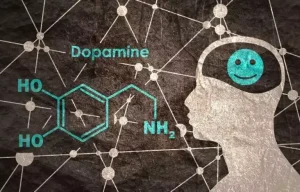
Even in these instances commitment to moderation is an important factor for success. It is clear from looking at the research that if you want to increase your odds of success, abstinence is the way to go. And while neither path is easy, the abstinence road seems to offer less resistance. You’ll meet hundreds of fellow Reframers in our 24/7 Forum chat and daily Zoom check-in meetings. Receive encouragement from people worldwide who know exactly what you’re going through!
A Practical Approach for Behavioral Health Clinicians
It’s also important to know that you can change certain circumstances, and therapy can aid in helping you set boundaries that empower your progress. There’s no clear answer to the question of whether drinking in moderation or abstinence is better for everyone. It depends on individual factors and our specific situation — and the counsel of our healthcare provider. People may choose abstinence for a variety of reasons, including recovering from alcohol use disorder (AUD), improving overall health, religious reasons, or simply personal preference.
Experiment with a 30 day reset

Trust that we’ll work together to develop a continuum of care plan that enables you to live your best life. Learn more about our whole-person healing philosophy by consulting a member of our admissions team today. More people than ever are recognizing the negative effects of drinking alcohol and re-evaluating how it shows up in their life. As a physician on the Monument platform, I speak with patients every day who are looking to change their drinking habits in order to improve their health and happiness.
- If quitting is your ultimate goal, starting with moderation may help you achieve it.
- A moderation approach may be recommended for those who prefer a gradual approach to progress.
- Unfortunately, many factors contribute to alcohol addiction, so some people are simply healthier if they opt not to drink.
- This method is the conscious and complete avoidance of alcohol or substances.
- Support groups based on sobriety, like Alcoholics Anonymous (AA), find success through fellowship.
Cons of Moderate Drinking

Our program offers expert medical support, recovery coaching, and a variety of tools and resources—all delivered 100 percent virtually. Learn more about moderation with Ria Health, or find out how our program works. After a period of moderate drinking, some people end up achieving abstinence anyway.
Chemically, their brains have become so altered that the very thought of alcohol triggers cravings beyond control. Though they can learn to live a clean and sober life by making different choices, many have found after relapse that the myth of having “just one” or being able to control their drinking is nothing more than a myth. We’ve had more than 50 years and Sober living house over 20,000 clients to develop an exceptional program.
- Proactively cutting back on drinking can start to illuminate how drinking less can give you more, and create the mental clarity to identify your goals and values.
- Although harm reduction may not be the best course for all, it offers another treatment plan that may produce good outcomes without an overly rigid set of expectations.
Expressive Therapies and Mind-Body Connection: How Creative Expression Affects Emotional and Physical Health
Quitting alcohol completely can be a challenge, but there are more ways to do it than ever before. Excessive drinking has numerous impacts on your body and mind, ranging from mild to severe. Learn which signs alcohol abstinence vs moderation to look out for, and how to care for your well-being. Regardless of your path, working with a physician and therapist can provide answers, reassurance, and guidance throughout the process. You also don’t need to have a clear understanding of your goal to start making progress.
- First of all, as mentioned earlier, don’t make a commitment until you are firm in your path to sobriety.
- Rehab facilities achieve this through random urine drug screens, group treatment programs, and care coordination.
- For people choosing recovery, alcohol abstinence is preferred to not only help the brain and body break chemical dependency but also to encourage a shift in behavior and emotional regulation.
It’s a healthy step in a positive direction, and is often achievable with medication. In the end, the best a therapist can do is offer a client-centered, flexible approach. For therapists using a predominantly, abstinence-only practice, considering more harm reduction strategies can empower clients to view themselves and their drinking in different ways. It can also open up therapy to many people who see abstinence as the only step forward. At the beginning, it’s essential for clients to acknowledge and accept their options and make an informed decision.
- Abstinence means giving up alcohol completely, and it’s the foundation of traditional treatment options like AA and most inpatient rehabs.
- Research indicates that 40–60 percent of risk factors are biological, so many family members choose to abstain if they know their background.
- These influences may include family dynamics, workplace culture, friendships, strained relationships, and lifestyle elements.
- Learning moderate drinking can help people set goals and make better decisions before they cross the line to alcoholism.
While it can seem daunting to practice abstinence, limit your alcohol use, or seek treatment, you can find comfort in the fact that there is no definitive “correct” way to get where you want to be. The best course of action is the one that will work the best for you. Abstinence may not be a realistic solution with some addictions, such as eating and in some cases sexual addictions.

At least based on these data, they are likely to make up a minor sub-set of individuals who seek moderation-focused treatment. It is also worth mentioning some baseline (i.e., pre-treatment) differences between the three groups to get a sense of the types of individuals in each group. We offer alcohol and drug detox services, dual-diagnosis addiction treatment, medication-assisted treatment (MAT) and more.
Leave a Reply